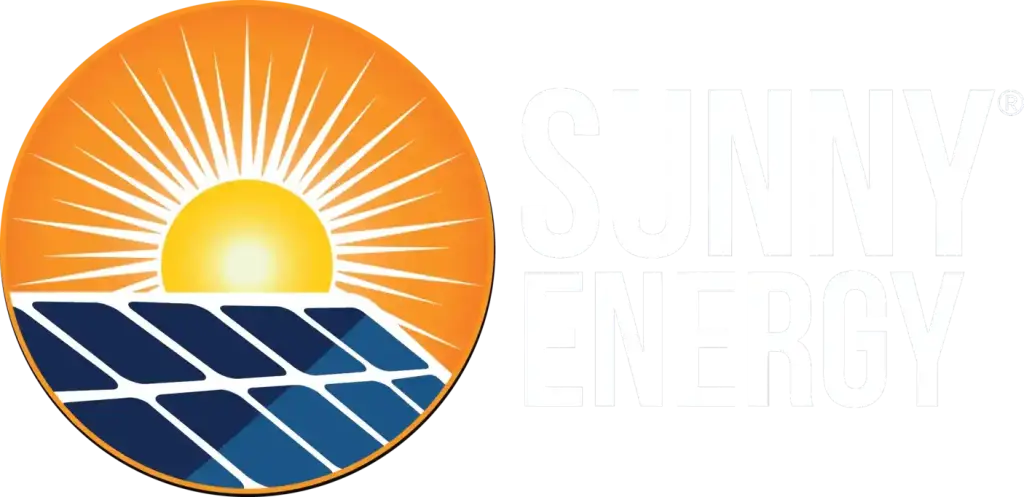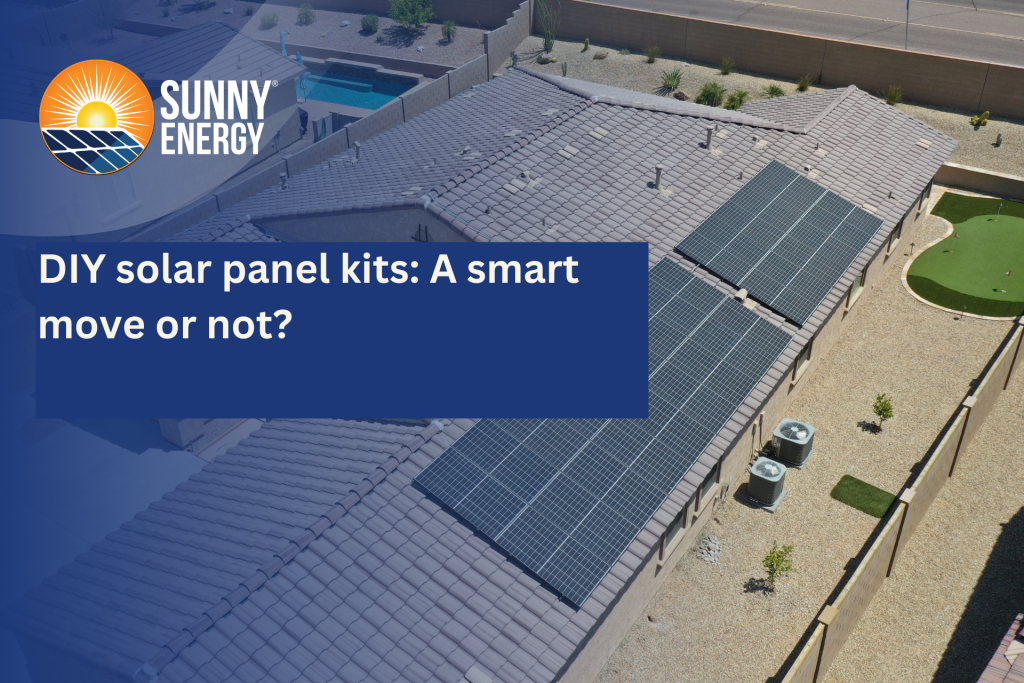Your solar panels have been installed, and you are now ready to capture the sun’s energy in your home. Future benefits such as moderately reduced energy bills and the environmental impact that goes with it add to the anticipation of having a smart home.
However, before you can flip the switch on your new solar power system, there’s one crucial step left: the solar panel inspection.
It is not just a routine procedure, but a crucial step toward making sure that your solar installation project complies with all safety regulations and performance standards.
As solar energy has become popular and more adopted in Arizona, it is essential to know the whole solar inspection process to overcome the last step with ease.
In this article, we will explain what is solar panel inspection, who is the inspector, what he or she will do, what will happen after the inspection, and how to prepare for the inspection.
At the end of this article, you will be ready to handle solar panel inspection thus the way forward to the adoption of solar energy.
The Solar Inspection Process
Inspector Qualifications
Solar panel inspections in Arizona are performed by certified inspectors from top rated solar companies in Arizona who have adequate knowledge of solar technology, electrical systems, and construction standards. Some of the inspectors may be employees of the local government while others may be employed with Arizona solar contractors. Their qualifications typically include:
1. Certification: The inspector should have certain accreditations which include certification from the North American Board of Certified Energy Practitioners (NABCEP) amongst others.
2. Experience: Most of the inspectors have previous experience in their respective Arizona solar company in electrical work or construction, thus giving them a good background in the systems they inspect.
3. Knowledge of Local Codes: There are strict rules and regulations for constructing buildings and electrical systems in every state of the USA including Arizona and the inspectors who are to conduct inspections of solar-related installations should have adequate knowledge and practical understanding of these codes and any changes that may have been made to them.
Documents Reviewed
Before the inspection, the inspector will review several key documents to ensure everything is in order::
1. Permits: Confirmation that all permits for installation such as building permits, electrical permits, and interconnection permits have been acquired, respectively.
2. System Design Plans: Wiring diagrams and plans of the placement of the solar panels, the connection of those panels, equipment specifications, etc.
3. Manufacturer Specifications: Information provided by the suppliers or manufacturers of the solar panels and inverters regarding installation conditions and parameters of the performance.
4. Inspection Checklists: Documentation that the installation company may have filled up before the inspection to meet the requirements of the regulations in place.

Breakdown of What the Inspector Will Be Checking
During the solar panel inspection, the inspector will evaluate several critical aspects of your solar installation.
Visual Inspection
The inspector will conduct a thorough visual assessment of the solar panels, checking for:
1. Physical Damage: Any visible defects, such as cracks, scratches, or discoloration on the panels.
2. Mounting Integrity: Ensuring that the panels are securely mounted and that the mounting hardware is properly installed.
3. Wiring and Connections: Inspecting the wiring for any signs of wear or damage and ensuring all connections are secure.
Electrical Inspection
This part of the inspection is crucial for ensuring the safety and functionality of the system:
1. Inverter Functionality: Checking that the inverter is installed correctly and functioning as intended.
2. Grounding and Bonding: Ensuring that the system is properly grounded to prevent electrical hazards.
3. Disconnect Switch: Verifying that a readily accessible disconnect switch is installed and functioning correctly.
Safety Compliance
Safety is paramount in solar installations. The inspector will check for:
1. Labeling: Ensuring that all necessary safety labels are in place, indicating the system’s components and emergency shut-off procedures.
2. Fire Safety: Confirm that the installation complies with fire safety regulations, including proper spacing between panels and roof edges.
Performance Readiness
While the inspector may not be able to assess the system’s performance fully until it’s operational, they will ensure:
1. Orientation and Tilt: The panels are oriented and tilted correctly to maximize solar exposure.
2. Monitoring Systems: Checking that any monitoring systems are installed and ready for use.
After the Solar Panel Inspection
After the inspection, the inspector will then prepare a report of what he or she has observed and discovered.
This report will indicate whether the installation has been successful or not and what problems may exist. If the inspection is successful, you will get a “Permission to Operate” (PTO) from your local utility and switch on your solar system.
If there is something wrong, your solar installation company will need to fix it as soon as possible.
This may entail providing some corrections, inspecting again, and guaranteeing that all the relevant changes required for compliance with safety and legal requirements have been put in place.
Time Taken to Receive the Inspection Results
The timeline for receiving the results of your solar panel inspection can vary based on several factors, including the timeline for receiving the results of your solar panel inspection can vary based on several factors, including:
1. Local Jurisdiction: It is important to note that the time taken by various city or county governments to process the inspection reports may not be the same.
2. Inspector Workload: The number of inspections the inspector is handling at the time could also determine how soon you get your results.
In most cases, you should be able to get the inspector’s report well within three to five business days. If your system is passed through inspection, the activation process can begin right away.
However, if corrections are needed, the timeline may be adjusted as your installation company seeks to address any problems.
Checklist: Action Plan for Implementing Changes
To ensure a smooth solar panel inspection, consider the following preparation steps:
1. Understand Local Regulations: It will be important to acquaint yourself with the specific local checklists of the areas where you operate or live. This way, you will be in a position to know what expectations the inspector has when inspecting a house.
2. Communicate with Your Installer: It is wise to keep in touch with your solar power companies in Arizona to ensure they are ready for the inspection and have all the paperwork available.
3. Clear the Inspection Area: Ensure that the surroundings of the solar panels is open for the inspector to access them easily. Ensure that there are no factors that may prevent them from assessing the system.
4. Gather Documentation: Maintain all documents that would be required as references such as permits, designs, and manufacturers’ specifications.
5. Be Present During the Inspection: You should try to be present during the inspection if possible. It lets you ask questions about the process and get a clearer picture of how it works.
6. Review the Inspection Checklist: It is recommended to get acquainted with possible inspection requirements in advance, so you would better prepare for it if such criteria exist.
Conclusion
Solar panel inspection in Arizona is crucial to guarantee that your installation is safe, conforms to the set standards, and is fit for use.
Knowing who the inspectors are, the papers they examine, and the aspects they scrutinize will help you be better prepared for this crucial checkpoint.
Even at this final stage of your solar installation project, do not take this inspection lightly for it is one of the best ways to ensure that the solar system is ready to operate efficiently and safely for many years to come.
Educate yourself and take time to consult with your solar installation firm so that you can learn the whole process of an inspection.
By taking the above steps, you will be on the right path toward embracing the use of solar energy in your Arizona home.
Being among the best Arizona solar companies, innovation is at the heart of Sunny Energy’s mission. They are constantly exploring new technologies and techniques to improve the efficiency and affordability of solar energy systems. This dedication to innovation ensures that Sunny Energy remains at the forefront of the industry and is considered one of the top solar power companies in Arizona, offering cutting-edge solutions to their customers.




